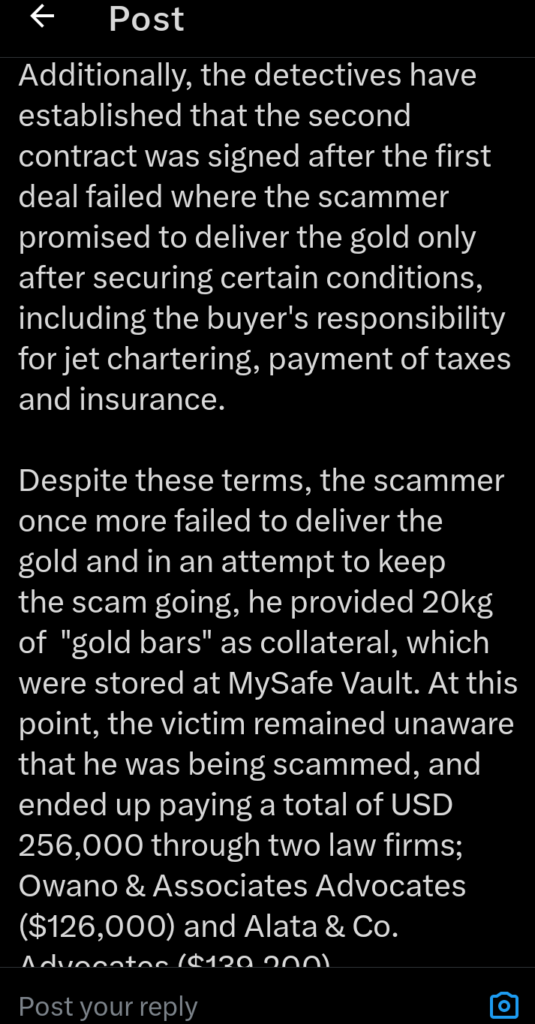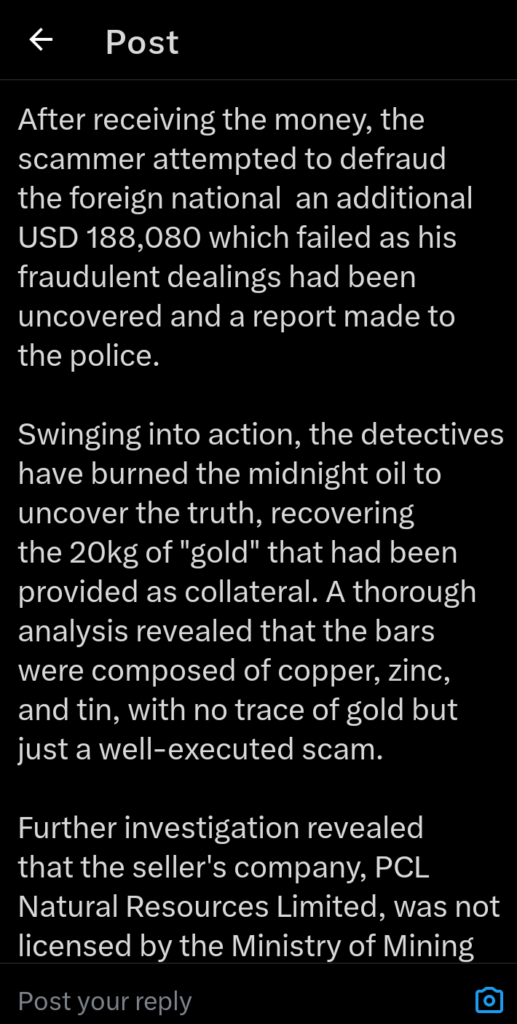The fraudulent scheme revolved around 500 kilograms of counterfeit gold bars.
Odek lured the victim with promises of delivering two shipments of gold in February and March 2024, priced at an exorbitant USD 40,000 per kilogram.

However, despite receiving hefty payments, Odek failed to deliver any real gold, substituting the promised shipment with 20 kilograms of fake bars made from copper, zinc, and tin.
Odek carried out his scheme through his company, PCL Natural Resources Limited, which investigations revealed was unlicensed to trade in precious metals.

The fraudulent transactions were facilitated by two law firms, Owano & Associates Advocates and Alata & Co. Advocates, which raises serious questions about their complicity or negligence in the matter.
The victim not only lost money on the fake gold but also incurred additional expenses for jet chartering, insurance, and taxes as part of the sham agreements.
When Odek attempted to extract another USD 188,080 from the victim, the fraud was reported, leading to his arrest and the recovery of the fake gold.
This case underscores the growing sophistication of gold scams in Kenya.
Fraudsters exploit unregulated firms and manipulate legal and logistical channels to appear legitimate, leaving unsuspecting victims with massive financial losses.
The involvement of law firms and the apparent ease with which Odek operated raise concerns about the lack of stringent oversight in the mining and legal sectors.

Such incidents tarnish Kenya’s reputation as a business hub and reveal systemic weaknesses that embolden criminals.
Authorities have highlighted the urgent need to address these scams, which are becoming more prevalent and elaborate.
Recent cases, including one involving USD 534,000 in fake gold, indicate a pattern where fraudsters use similar tactics to defraud investors.
While law enforcement agencies have intensified efforts, including cross-border collaborations, such responses remain reactionary rather than preventive.
Regulatory gaps in the licensing and monitoring of firms trading in precious metals make it easy for scammers like Odek to thrive.For victims, the consequences extend beyond financial losses.
The reputational damage to Kenya’s business environment makes it harder to attract genuine investors.
The complicity or negligence of intermediaries such as law firms erodes trust in professional services.
This case should serve as a wake-up call for authorities to enforce stricter regulations, ensure due diligence in the licensing process, and hold all parties involved in such schemes accountable.
The arrest of Steve Okoth Odek may be a small victory, but it exposes a larger, troubling trend of fraud and impunity.
Until systemic reforms are implemented, more unsuspecting investors will likely fall victim to these scams, perpetuating a cycle of financial exploitation and mistrust.





















Add Comment